Chair of Milli Majlis Sahiba Gafarova Gives a Speech at Warsaw University
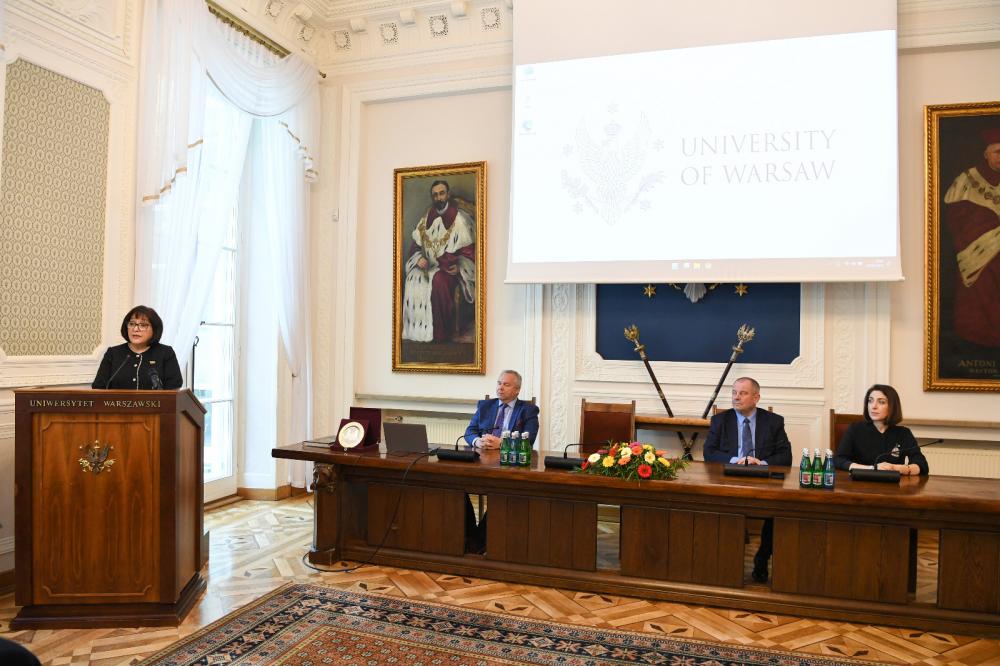
Speaker of the Milli Mejlis Sahiba Gafarova Speaker gave a presentation ‘Dialogue and Solidarity: Azerbaijan’s Vision for Co-operation and Development’ at the University of Warsaw as part of her official visit to the Republic of Poland.
Mrs Gafarova welcomed the students and lecturers of the University and said that she was happy to perform in such a prestigious educational institution.
The speech began with an extensive review of the ancient history and statehood traditions of the Azerbaijani people, with Mrs Gafarova noting that this history counted five thousand years before telling about the states created by our people on our territory, the establishment of the first democratic parliamentary republic in the Islamic East – the Democratic Republic of Azerbaijan on 28 May 1918, and the important steps then taken to build an independent democratic state. The restoration of Azerbaijan’s independence in 1991 ushered in a new era of her statehood, according to Mrs Gafarova who told her audience of the historic achievements of our state during the period of independence.
Today, Azerbaijan, in full acceptance of norms and principles of international law as the only rules of conduct in the international arena, attaches great importance to multi-vector co-operation and equal partnership based on mutual trust and interests, and has always sought dialogue and solidarity. Azerbaijan celebrated its thirtieth anniversary of membership in the United Nations last year. All those years Azerbaijan has been a responsible member of the UN and has done its best to uphold principles of international law and justice. Azerbaijan was elected as a non-permanent member of the UN Security Council for 2012-2013 with support of 155 member states, which demonstrates a high level of trust of the international community towards the country. Furthermore, Azerbaijan has twice chaired the Security Council.
In addition to UN membership, our state is a member of the Non-Aligned Movement, the Organisation for Security and Co-operation in Europe, the Council of Europe, the Organisation of Islamic Co-operation, the Organisation of Turkic States, the Black Sea Economic Co-operation and other international and regional structures. An active member of the international community, Azerbaijan considers it to be of utmost importance to achieve international peace and security. Our country has contributed to many international peacekeeping operations mandated by the UN Security Council and participated in NATO's Resolute Support Mission in Afghanistan.
While energy security concerns are mounting, Azerbaijan is contributing to maintaining the security with its partners by serving as a stable and reliable supplier of oil and gas to European and international markets. The implementation of mega-projects such as the Baku-Tbilisi-Ceyhan oil pipeline and the Southern Gas Corridor changed the European energy map completely, and these undertakings now play a significant role in diversifying energy supplies. Moreover, Azerbaijan's large-scale transport infrastructure projects have turned our country into one of the main international transport and logistics hubs of the Middle Corridor.
Today Azerbaijan is viewed as one of the world's centres of inter-cultural and inter-religious dialogue. Located at the crossroads of the East and the West in the South Caucasus, the country is home to various ethnic and religious groups living together in dignity, peace and friendship. We have various religious and cultural monuments, mosques, churches and synagogues all standing nearby. Multiculturalism is a way of life for our people. Consequently, respect for different cultures, religions and races constitutes an integral part of the spiritual values of the Azerbaijani people and Azerbaijan's state policy.
Having remarked that Azerbaijan has always taken special care of multiculturalism and tolerance issues, Sahiba Gafarova added that the country which has hosted numerous international events such as the UN Alliance of Civilisations Forum, the Global Baku Forum, the World Religious Leaders Forum and the Intercultural Dialogue Forum, happens to be a cross-cultural and interfaith centre, and believes dialogue is a key to peace, harmony and cooperation across the world.
Azerbaijan has been chairing the Non-Aligned Movement, the largest international institution after the UN, since 2019, and as chair she has taken significant steps towards the Movement's institutional development. Aware of the importance of inter-parliamentary co-operation on a global scale, Azerbaijan has taken the initiative to develop the NAM’s parliamentary dimension and so the NAM Parliamentary Network, inaugurated in Madrid in November 2021, held its first – Baku – Conference in Azerbaijan in June 2022 and the second – Manama – Conference - in Bahrain this year. Another important move was to set up the NAM Youth Organisation the permanent secretariat of which will be stationed in Baku. Both initiatives are seen as elements of strengthening further solidarity and co-operation between the 120 NAM members from different regions of the world.
Azerbaijan's chairmanship of NAM came during the most difficult part of the COVID-19 pandemic. Our country used the chairmanship as a tool to strengthen the international community's common efforts and joint action to fight the pandemic, and launched a number of successful global initiatives to this end. A special session of the UN General Assembly dedicated to the fight against the pandemic COVID-19 was held in December 2020 at the suggestion that the President of Azerbaijan Ilham Aliyev had made as the NAM Chairman. And in March and December of 2021, the Human Rights Council and the UN General Assembly adopted resolutions on ensuring equitable, accessible, timely and universal access to vaccines for all countries in response to the COVID-19 pandemic. In addition, Azerbaijan has provided financial and humanitarian support to more than 80 countries in response to the pandemic. The country's leader, Ilham Aliyev, also proposed the creation of a UN high-level panel on global recovery after COVID-19.
President Ilham Aliyev made two global appeals to support post-pandemic reconstruction in Africa and small island developing states, which appeals were put forth in response to COVID-19 at the top-level meeting of the NAM Contact Group in Azerbaijan in March this year. President Aliyev, besides, announced that Azerbaijan had allocated $1 million to help implement both appeals. All these causes are intended to strengthen international solidarity and co-operation to combat the pandemic as well as for post-pandemic recovery.
Going further, the Speaker of the Milli Majlis also supplied her audience with ample information about the Armenian aggression against Azerbaijan. She said that Armenia had kept 20 per cent of internationally recognised Azerbaijani territory in captivity for almost 30 years. Our formerly captured towns and villages were destroyed and our historical, cultural and religious monuments fell victim to Armenian vandalism during the years of the equally Armenian occupation. Environmental terror was also perpetrated against the nature of those areas. Ethnic cleansing carried out by Armenia turned more than a million Azerbaijanis into displaced persons and refugees.
Azerbaijan had spent long years waiting for a peaceful settlement of the conflict before exercising her right to self-defence in accordance with Article 51 of the UN Charter and enforcing the resolutions of the UN Security Council and the principles and norms of international law in 2020. It was thus that Azerbaijan restored her territorial integrity and historical justice alike.
Now we have started large-scale rehabilitation and revitalisation of these areas in line with the concept of smart cities and villages. The first families of the former displaced persons have already begun to return to their homes.
One of the gravest problems jeopardising these efforts is caused by the more than one million mines that Armenia has planted in those lands, Mrs Gafarova stressed, stating also that some 300 civilians and soldiers have been killed and wounded by these mines in the past two years.
Azerbaijan has made efforts to ensure long-term peace and stability in the region, and has invited Armenia to sign a peace treaty based on the five principles of international law. However, Armenia continues to violate its commitments blatantly, keeps its armed units in the internationally recognised territories of Azerbaijan and hinders the opening of all communication and transport routes in the region. Having unilaterally withdrawn from the peace negotiations, Armenia carries on resorting to resort to military provocations on the border and in the sovereign territory of Azerbaijan in order to exacerbate the situation. What Armenian vision for future holds is still unknown.
Though it was Azerbaijan that had suffered from occupation, it is also Azerbaijan that looks to the future and strives for peace, simply because this peace is the only way to stability, development and co-operation.
The Speaker of Milli Majlis talked of relations between Azerbaijan and Poland, the friendly and partner countries. Although relations between them are 31 years old now, the traditions of friendship and co-operation between our peoples have stood for centuries. With a glimpse of history, Mrs Gafarova told the audience about the famous persons of Polish origin who once lived and worked in Azerbaijan.
The political relations between Azerbaijan and Poland are at a high level currently, Mrs Gafarova said before pointing to the great role of counter visits by the countries' presidents in deepening our relations. There is great potential for co-operation in various areas; both sides have the determination and will to use this potential and develop interaction in the economy, trade, transport and other areas.
Our peoples’ long-standing friendship tradition is very beneficial for joint endeavours in education, science, culture and tourism. Numerous cultural events and mutually beneficial activities in the humanitarian sphere bring our peoples closer together, besides.
The interaction between parliaments is undoubtedly one of the important and positive factors affecting the bilateral and multilateral relations between our countries. We parliamentarians represent our peoples whilst our work reflects their will. Today there is effective co-operation between our legislatures, both bilaterally and within inter-parliamentary organisations. Visits of Speakers of Parliament and members of friendship groups to both countries contribute to the further development of this cooperation.
Sahiba Gafarova then remarked that that she had held several meetings with her colleagues during the 3 days past and that she was pleased with the outcome of the visit. The discussions and results show that the friendly relations and co-operation between our countries and parliaments, all to mutual benefit, will successfully develop and strengthen in the future, she concluded.
The Press and Public Relations Department
The Milli Majlis



_1682003877.jpeg)
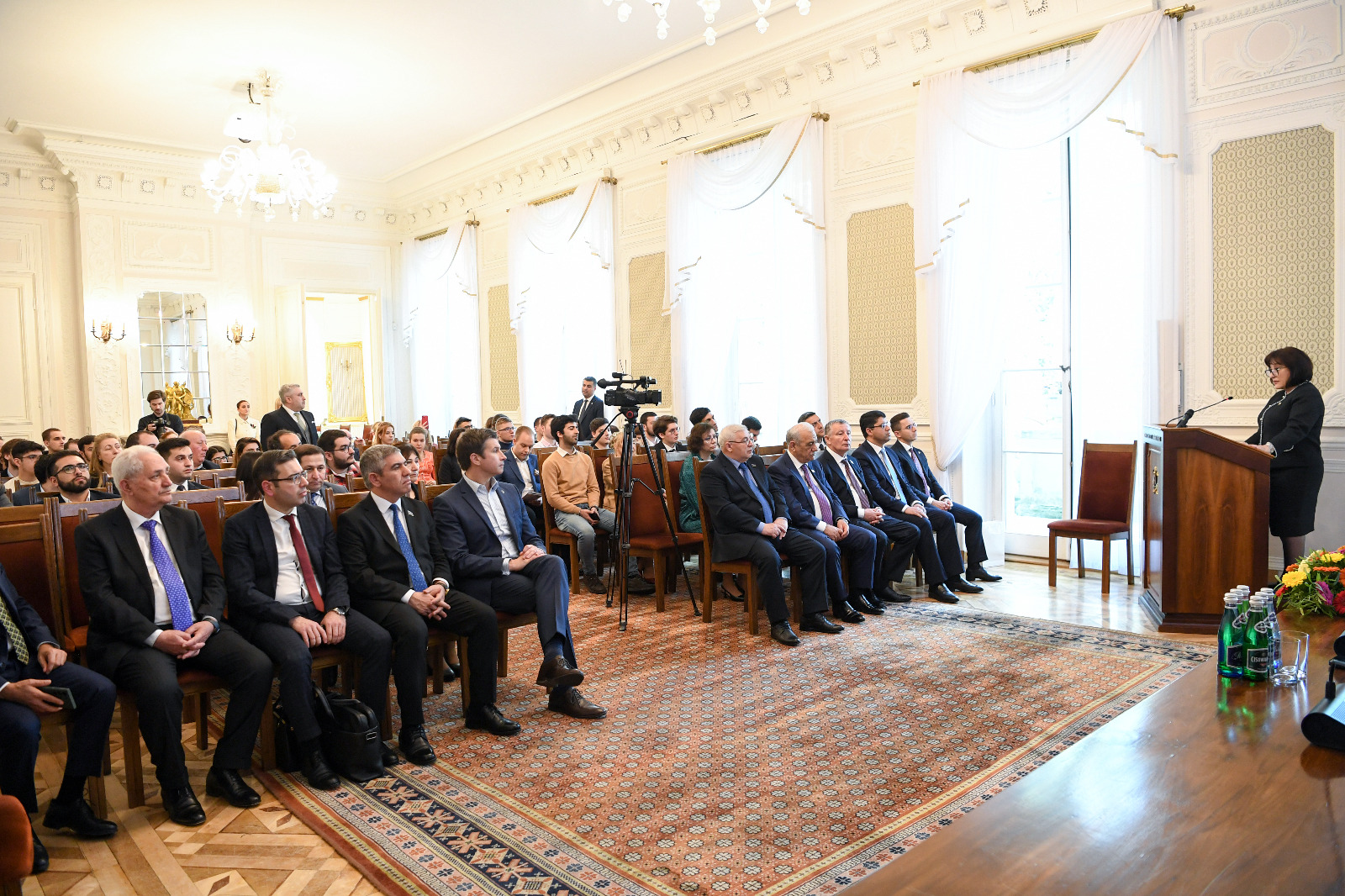
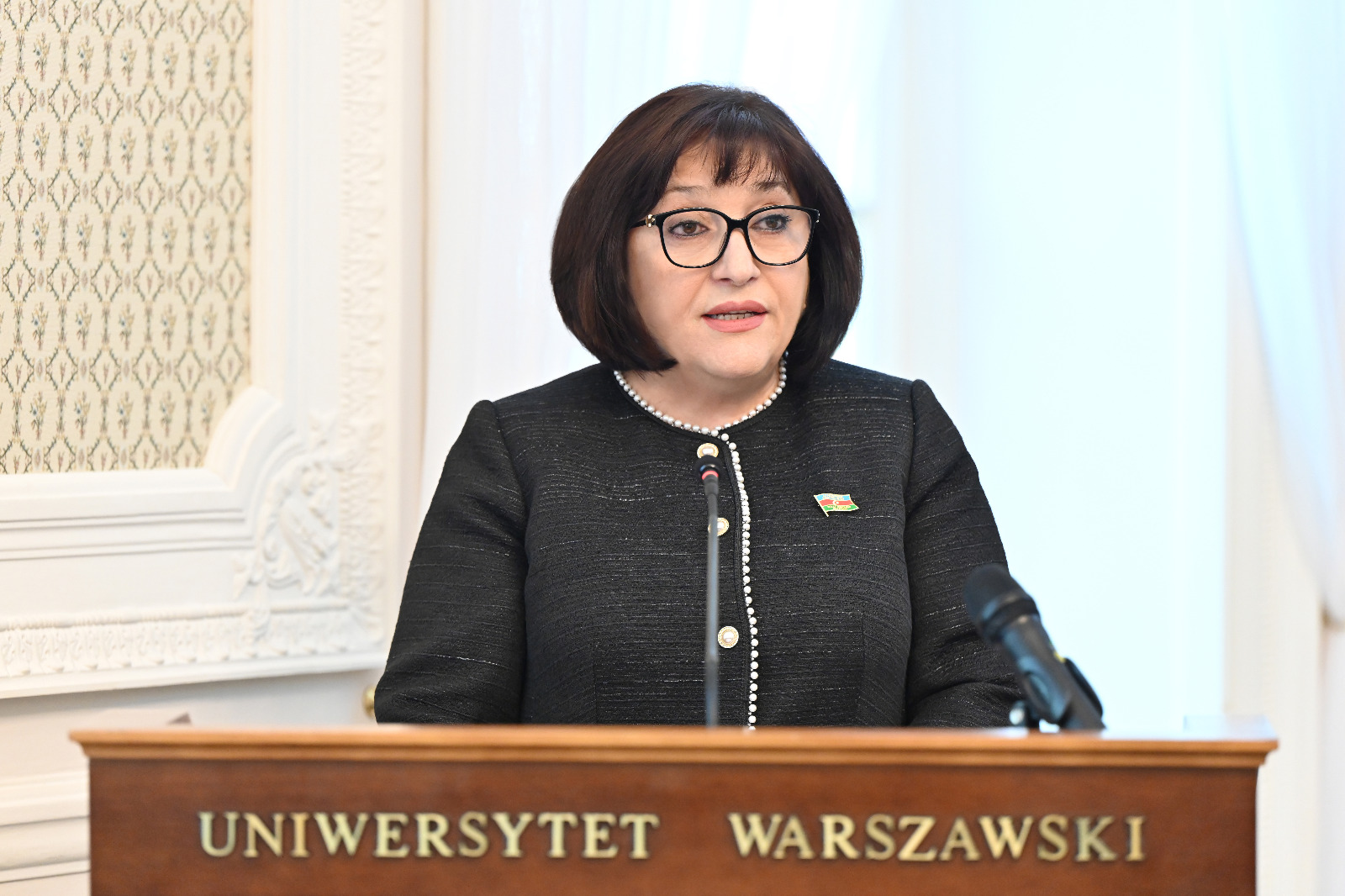
_1682003877.jpeg)
_1682003877.jpeg)
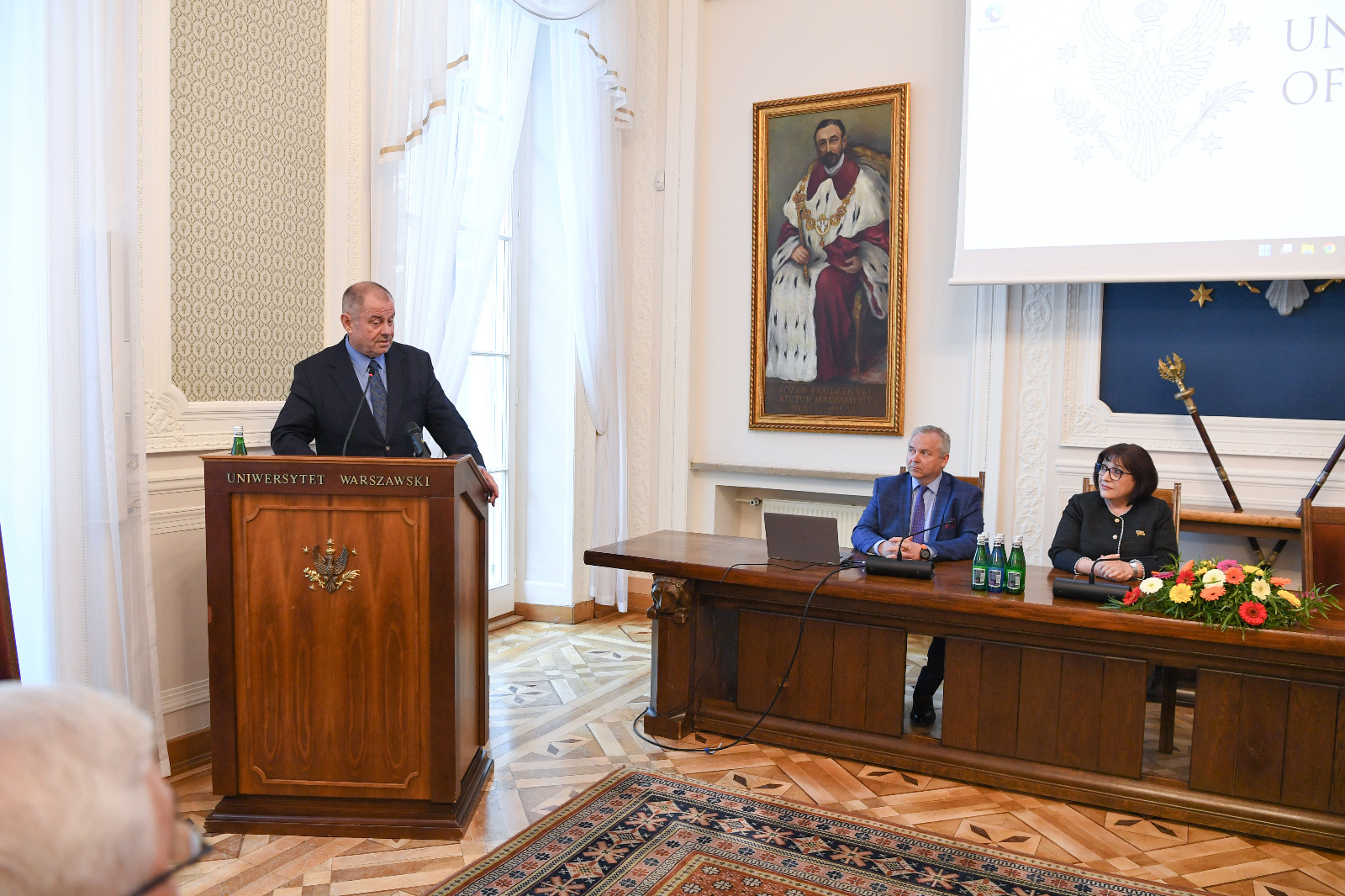


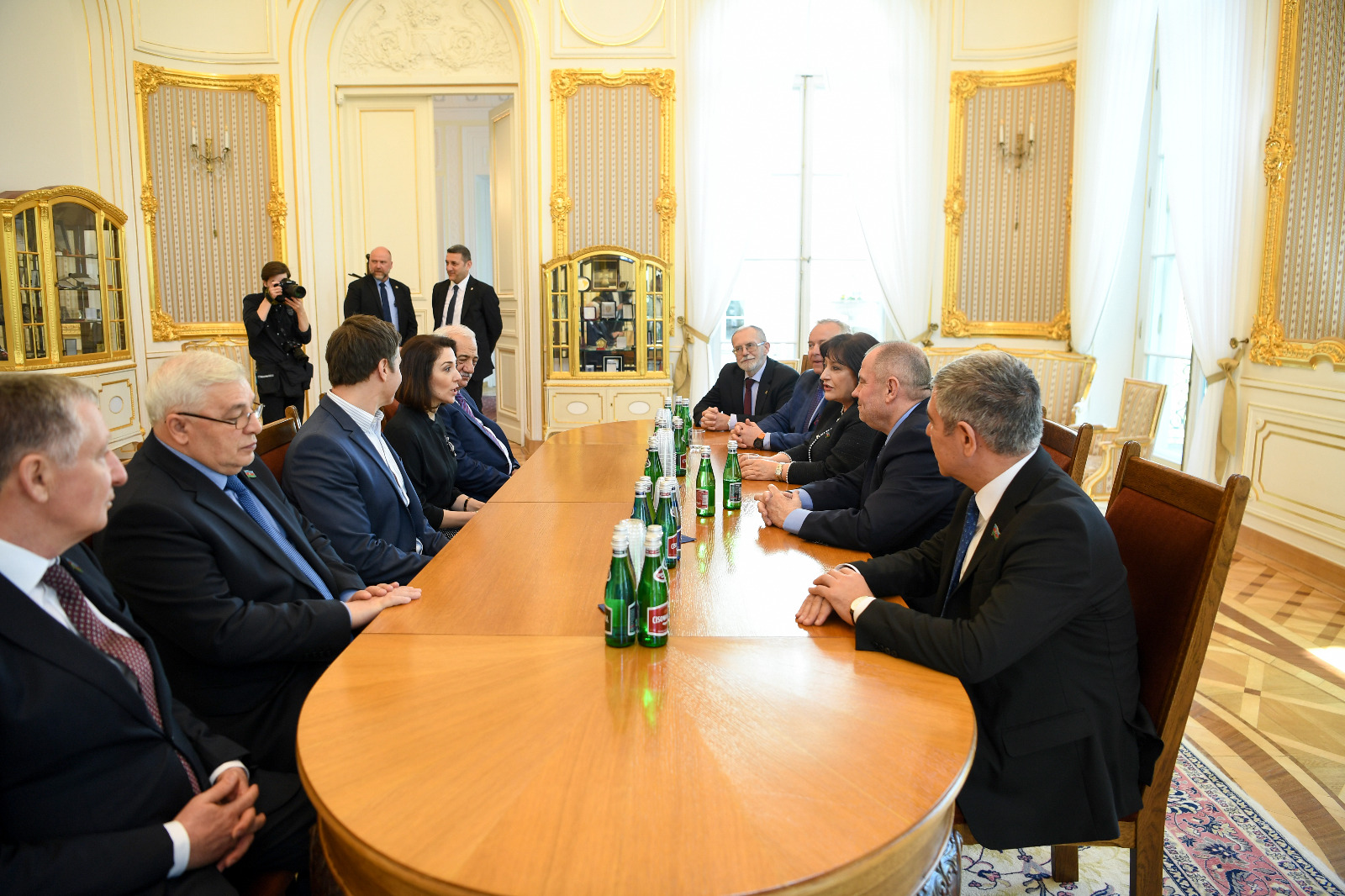
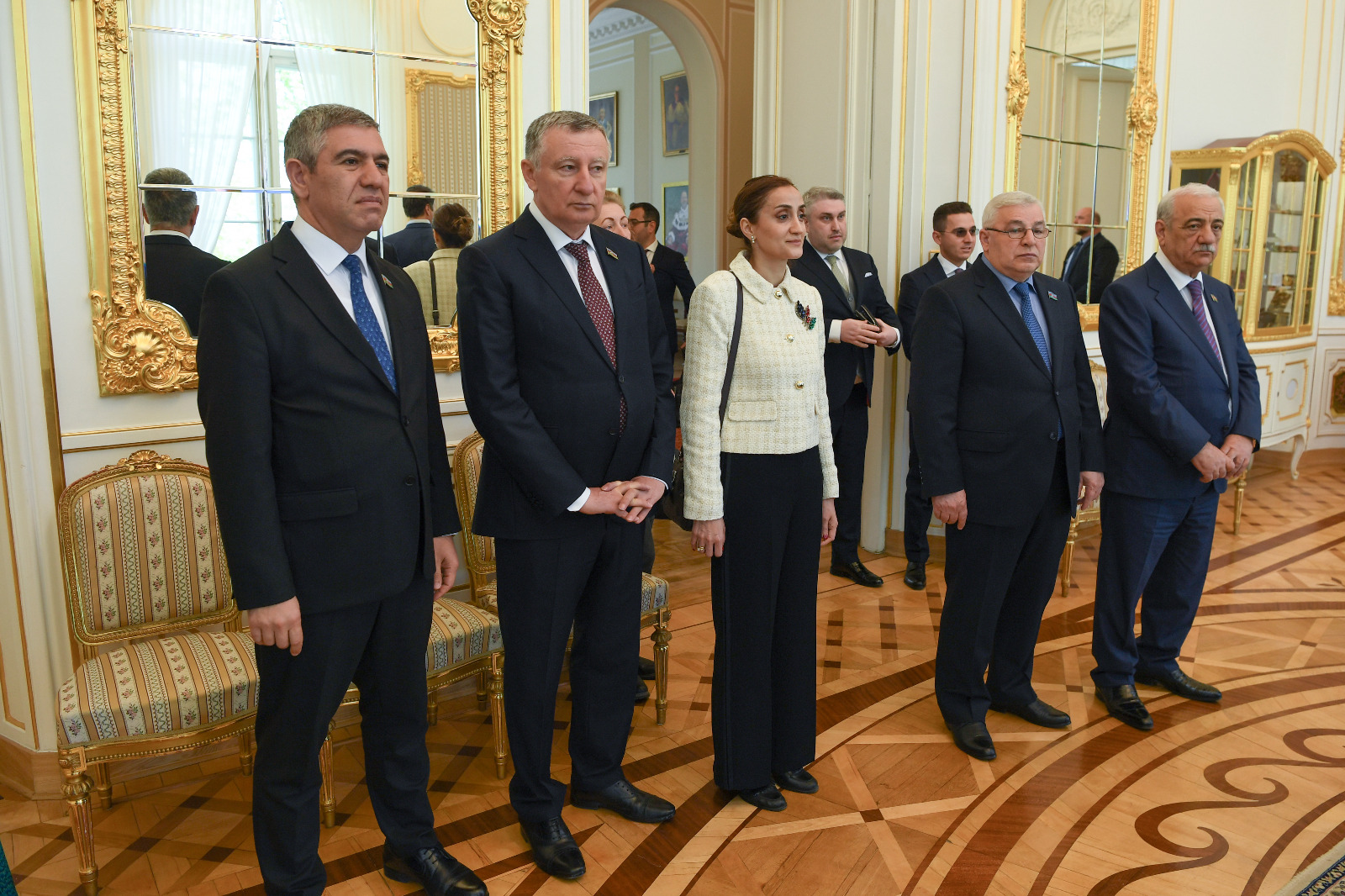
_1682003878.jpeg)
_1682003879.jpeg)
